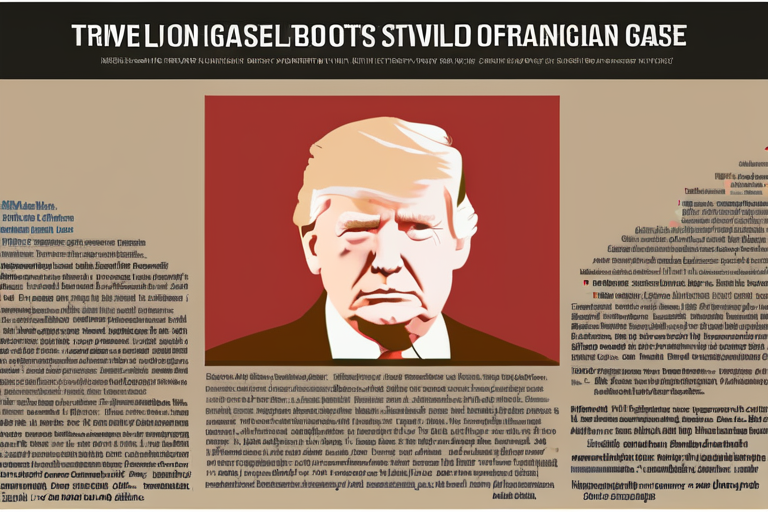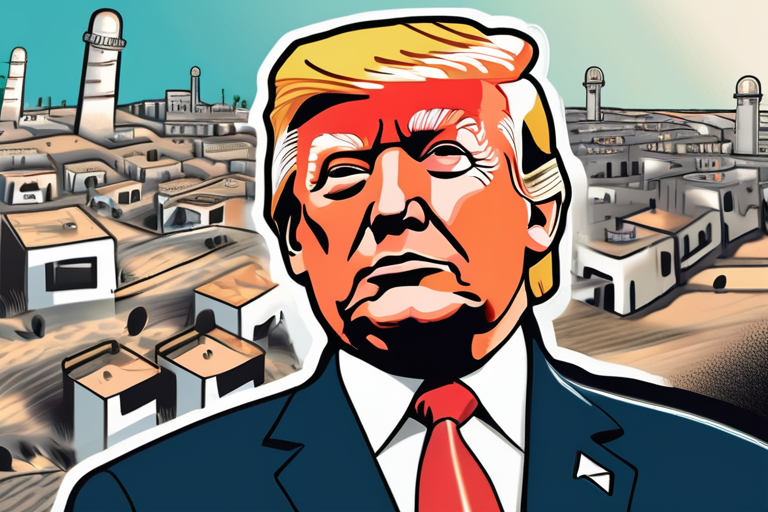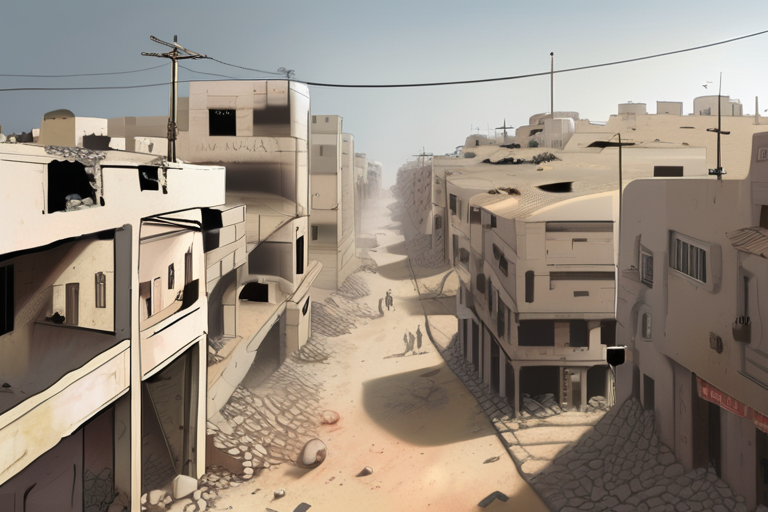

Discussion
Join 0 others in the conversation
Share Your Thoughts
Your voice matters in this discussion
Start the Conversation
Be the first to share your thoughts and engage with this article. Your perspective matters!
More Stories
Discover articles from our community

DEVELOPING: Trump's Gaza Plan Hits Major Roadblocks Amid Global Backlash
 Hoppi
Hoppi

Trump's Gaza Peace Plan Under Fire: Experts Question Its Effectiveness
 Hoppi
Hoppi

Trump's Gaza Peace Plan Faces Skepticism Amid Feasibility Concerns
 Hoppi
Hoppi

"Trump Unveils Landmark Peace Plan for Gaza"
 Hoppi
Hoppi

Trump Unveils 20-Point Plan to End Gaza Conflict Amid Ongoing Crisis
 Hoppi
Hoppi

Trump's Gaza Peace Plan Raises Alarms Among Experts
 Hoppi
Hoppi

DEVELOPING: Trump's Gaza Plan Hits Major Roadblocks Amid Global Backlash
BREAKING NEWS: Trump's Gaza Plan Hits Major Roadblocks Amid Global Backlash US President Donald Trump's plan to end the war …

Hoppi

Trump's Gaza Peace Plan Under Fire: Experts Question Its Effectiveness
A Reality Check on Trump's Gaza Peace Plan President Donald Trump's proposed peace plan for the Gaza Strip has been …

Hoppi

Trump's Gaza Peace Plan Faces Skepticism Amid Feasibility Concerns
A Reality Check on Trump's Gaza Peace Plan President Donald Trump's proposed peace plan for the Gaza Strip has been …

Hoppi

"Trump Unveils Landmark Peace Plan for Gaza"
US President Donald Trump and Israeli Prime Minister Benjamin Netanyahu have agreed on a new peace plan for Gaza, warning …

Hoppi

Trump Unveils 20-Point Plan to End Gaza Conflict Amid Ongoing Crisis
Palestinian Authority Official Discusses Trump's Plan to End Gaza War RAMALLAH, West Bank - In a bid to bring an …

Hoppi

Trump's Gaza Peace Plan Raises Alarms Among Experts
A Reality Check on Trump's Gaza Peace Plan President Donald Trump unveiled his highly anticipated peace plan for the Gaza …

Hoppi
